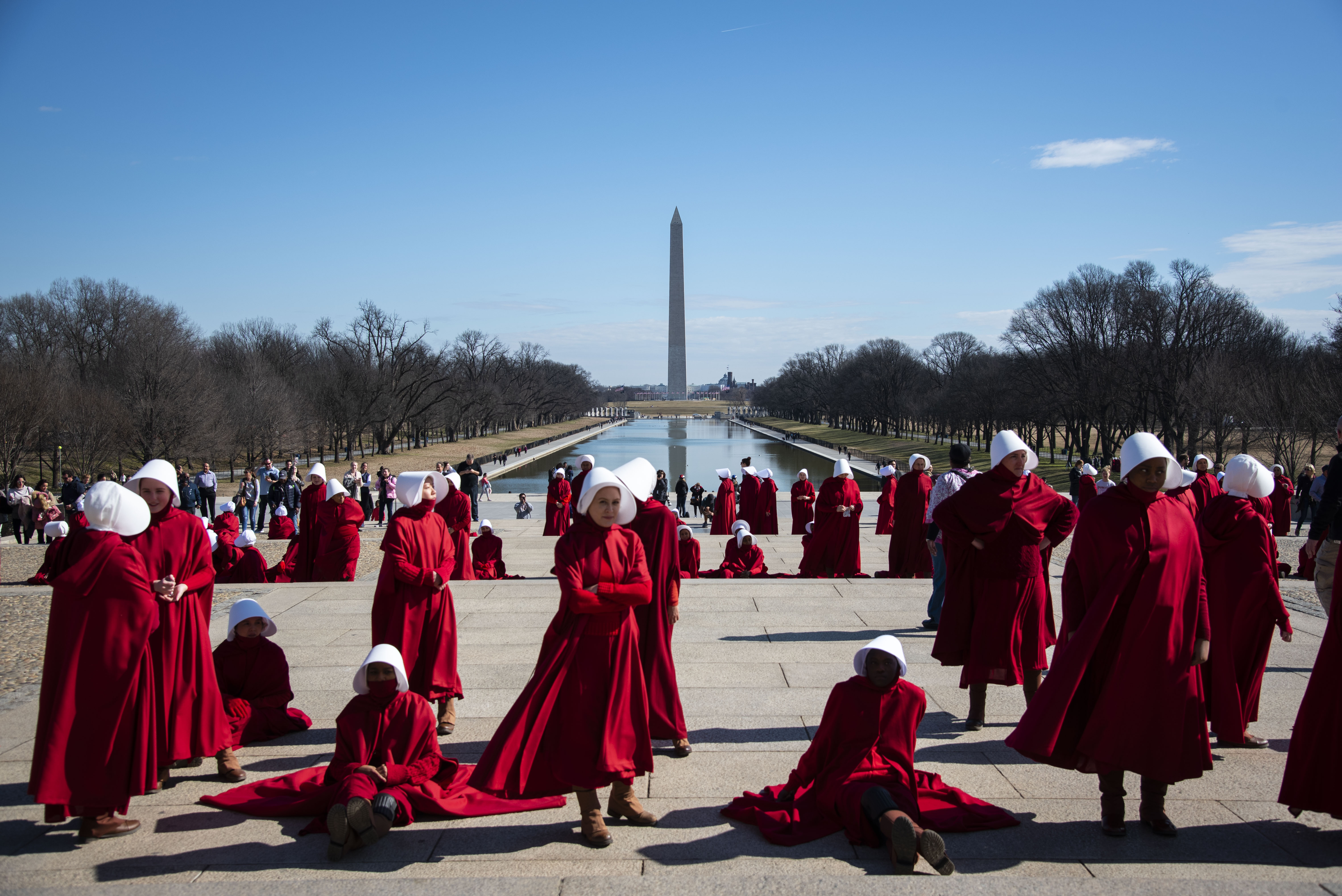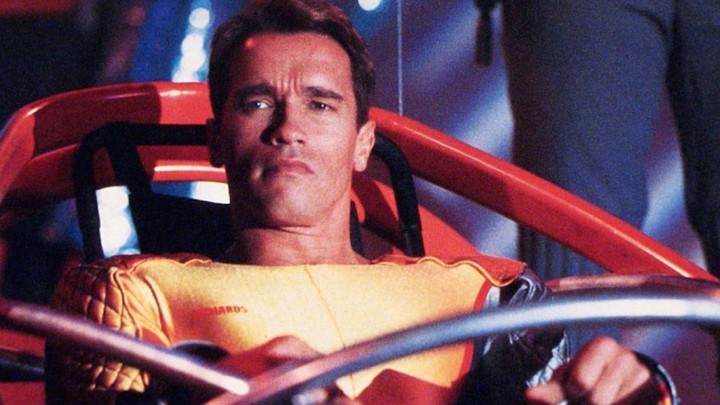Since the news never seems to slow down these days, here are a few stories from the past few weeks that you may have missed:
- The richest CEO on the planet is spending his money trying to build fancy space habitats that will be “Maui…all year long”
- The U.N. reports that on the actual planet a million species are at the risk of extinction
- A start-up has raised millions to sell “punk rock” canned water called Liquid Death with the slogan “murder your thirst”
- Tech guys are starving themselves to be more like Twitter CEO Jack Dorsey
Things, to put it mildly, are weird.
Too often these days, reading the news feels like an exaggerated science-fiction dystopia of corporate greed and omnipresent consumerism. Specifically, it feels like the 1980s films that depicted some version of a bleak near-future America as a corporate wasteland where the rich get richer and the rest of us waste our life watching TV and buying products like absurdly large cars (years before Hummers were sold in every city) and Sunblock 5000 to counter the effects of climate change.
Watch any documentary on the decade and you’ll hear a narrator tell you about how the Reagan ‘80s were a time when consumerism and the push to deregulate business bloomed. Many Americans were desperate to forget the social struggles and political tragedies of the 1960s and 1970s, so the ‘80s were the decade when mainstream culture turned away from the political messages of hippie culture, and embraced open materialism in hits like Madonna’s “Material Girl.”
But something that tends to get overlooked amid all this is the underground counterculture that bloomed, exemplified by cult classic science-fiction films as well as hardcore punk bands like Minor Threat, Suicidal Tendencies and MDC and hip-hop acts like N.W.A. and Public Enemy — all figures who viewed this new American utopia as a nightmarish hellscape. Black Flag satirized people who had nothing better to do than sit around all day drinking beer and watching television while the burgeoning cyberpunk genre, guided by writers like William Gibson, envisioned a world of corporate control and technology run amok.
Because whatever 2019 reality is, it isn’t subtle.
Like the music and books of the decade, ‘80s sci-fi films weren’t subtle. Take Paul Verhoeven’s RoboCop, a movie about a police officer who is turned into a cyborg when the Detroit police department is taken over by a megacorporation called Omni Consumer Products. In the world of RoboCop, global corporations control the government while most of the public wastes away watching TV. Or take John Carpenter’s They Live, where an elite ruling class (who are secretly aliens) controls the population through subliminal advertising that turns people into bland yuppies obsessed with consumerism. Paul Michael Glaser’s The Running Man, based off a Stephen King novel of the same name, takes place in a 2019 where people watch a brutal game show that’s a cross between reality TV, American Ninja Warrior and The Most Dangerous Game. The mode of these ‘80s films is less “light touch” and more sledgehammer to the skull.
But the lack of subtlety is exactly what makes these films so prescient. Because whatever 2019 reality is, it isn’t subtle. Is RoboCop’s “Omni Consumer Products” any more absurd than “Comprehensive Health Services,” the Orwellian name of the branch of Caliburn that runs migrant child detention centers in contract with the federal government? While aliens may not run our corporate advertisements, the vision of They Live is hardly more dystopian than a world where tech companies target us with advertisement algorithms that know more about us than our own family members.
Unrestrained capitalism and mindless consumerism are sadly not the only things that 1980s dystopias got right. Margaret Atwood’s seminal 1985 science fiction novel The Handmaid’s Tale envisioned a future where far right evangelicals enacted extreme control over women’s bodies. Last week, Georgia signed a law that “all but bans abortion” in the state and could even put women who travel to another state for the procedure in jail; this week, Alabama and Missouri signed similar bills. Protesters dressed as characters from the Hulu adaptation of Atwood’s novel could be seen at their various state capitals.

The underground hardcore punk of the 1980s was both influenced by and a major influence on these dystopian films. Movies like Alex Cox’s Repo Man feature punks who strive to forge their own identities in a world of “ordinary fucking people.” The hardcore punk of the era often featured similar political satire that seemed to predict our current problems, such as the Dead Kennedys’ song “Trust Your Mechanic” that warns, among other things, how the medical industry traps patients with rising costs until “you’re ensnared by the medicine man paying up the ass again and again.” Given that today Americans collectively borrow billions upon billions of dollars just to pay for basic healthcare, it seems like singer Jello Biafra was on to something.
In 2019, it’s hard not to feel like the more ominous predictions of the 1980s came true. Perhaps we’re streaming Netflix shows and downloading podcasts on our cellphones instead of sitting in front of television sets. We’re not hacking sentient cyberpunk computers, but we’re busy “lifehacking” while corporations “data mine” our virtual lives. Perhaps it isn’t aliens controlling us, but rather massive social-media companies built on complex, invasive algorithms.
Whoever’s to blame, at the end of the day, we’re living in the corporate dystopia the 1980s warned us about. And we didn’t even get hoverboards.
This article was featured in the InsideHook newsletter. Sign up now.


















